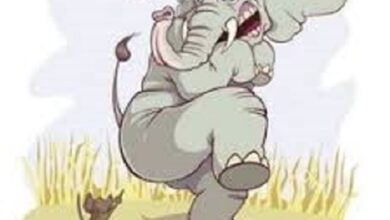Types of temperament How to find & temperament in organization
Temperaments
Temperaments are aspects of our personality that characterize our behavior . They are related to the way of seeing the world, interests, abilities and values of each one. In this article we will let you know about the Types of temperament.
Hippocrates (460 to 370 BC), known as the father of medicine, recognized the different types of temperament and presented a theory to explain them, defending the idea that biological phenomena were responsible for our behavior.
Although Hippocrates started this theory, it was Emmanuel Kant who most influenced the dissemination of these concepts in Europe, bringing good descriptions of temperaments.
To work on our temperament, we need to know it and for that, self- knowledge is necessary , and understanding that it is a characteristic that accompanies us throughout our lives.
But that doesn’t mean it can’t be worked on and shaped, so that some traits, which can be harmful to us and the people we live with, don’t have so much prominence.
According to Daniel Goleman, author of the best seller Emotional Intelligence , although there are points that determine a person’s temperament, there are many brain circuits in the human mind, and they are malleable.
All of this is possible through emotional intelligence, which is an essential skill for our daily lives.
Let’s know what the 4 types of temperament are?
The relationship between the Temperaments theory and the DISC test
In a recruitment process, it is common to use behavioral mapping tools such as DISC , for example. Through these tools , it is possible to know the profile of your future employee .
The characteristics related to each profile proposed by the DISC methodology are related to the temperament theory.
A parallel between the two methods leads us to identify that the dominant profile is represented by the choleric , the influential by the sanguine , the stable by the phlegmatic and the condescending by the melancholic .
Interesting, isn’t it?
The DISC Test , based on the theory developed by psychologist William Moulton Marston, assesses people’s behavior in a certain environment.
The assessment is called DISC because it states that there are four basic traits of behavior in people: Dominance (D), Influence (I), Stability (S) and Condescension (C) .
It is worth remembering that no one has a single style and that none is better or worse than the other. The important thing is to seek self-knowledge to conquer the ideal vacancy for your profile !
The time has come! Take the test and find out what kind of work environment you fit in!
The DISC Test, based on the theory developed by psychologist William Moulton Marstonavalia, assesses people’s behavior in a certain environment. The assessment is called DISC because it states that there are four basic traits of behavior in people: Dominance (D), Influence (I), Stability (S) and Condescension (C). It is worth remembering that no one has a single style and that none is better or worse than the other. The important thing is to seek self-knowledge to conquer the ideal vacancy for your profile! Take the test and find out what kind of work environment you fit in!
4 Types of Temperament
Before starting to explain each one of them, it’s important to say that we don’t necessarily have just one temperament. We may have traits from others, but usually one of them dominates our personality.
Another important thing is: don’t point out someone else’s temperament and don’t use it as a way to belittle or blame someone.
Temperaments can be worked on in each of us with a good dose of self-knowledge.
Now yes, we’re ready to learn what the 4 types of temperament are and get you to know yours! Come on!
1. Blood
The person who has the sanguine temperament is characterized by being more extroverted and optimistic.
They are cheerful, hopeful, warm, kind and friendly people. In general, they are explosive, emotionally unstable , impulsive and even selfish.
You know that friend of yours who has a certain difficulty keeping quiet? Who is always cracking a joke or who interrupts you whenever you’re talking? So these are characteristics of a sanguine.
2. Choleric
People with a choleric temperament are more explosive and aggressive than others.
They are domineering, ambitious, determined, impulsive people, they command and lead and are good planners. In some situations they are intolerant, self-centered and impatient.
3. Phlegmatic
You know that person who does everything to avoid a conflict ? So this is one of the characteristics of a phlegmatic.
They are docile, peaceful, dreamy, positive and disciplined people . Generally these people are reliable and balanced.
4. Melancholic
The deepest temperament is the melancholic. Melancholics are sensitive in their emotions, they are detail-oriented people, who like to be quieter.
They have difficulty exposing their emotions and feelings, they are faithful and suspicious. They are loyal, sensitive and dedicated people.
In the image below we can see the four types of temperaments with the qualities and points for improvement.
Remembering that all these characteristics are not rules.
Temperaments need to be accepted and can be worked on so that each person performs the role that best suits them.
Knowing the temperament of a company’s employees is essential for the organizational system to work in harmony, making the work environment pleasant for everyone.
Human resources professionals, in most companies, are responsible for identifying the characteristics of each professional in a selection process, for example, and integrating them into a team.
Although each one has a characteristic, as we saw in the description of each temperament, with distinct and often conflicting personality traits, it is possible to make these people interact harmoniously.
How to find out your Temperament Type?
If you’ve made it this far, you’re probably wondering what your temperament type is. And so I brought possible solutions that can help you!
There are several ways to discover your temperament or which temperaments predominate in you. Let’s understand some ways:
- Self-analysis: After reading and studying about each type, you can perform a self-analysis. But you see, it needs to be realistic and true.
- Professional help: Another possible way to get your type of temperament is to get help from a professional, like a psychologist for example.
- Online tests: There are today several tests capable of providing you with answers. For example, the test proposed by the Educamais website .
Now that you’ve understood more about the types of temperament and found out which one is yours, let’s understand how each one behaves in an organization?
How does each type of Temperament behave in an organization?
Cholerics usually occupy leadership positions , are achievers and good strategists, and are motivated by challenge.
Sanguine people are outgoing and enjoy making friends with a variety of people. In the work environment, they perform several tasks at the same time, are innovative and adaptable .
The person with a phlegmatic temperament is a professional who follows a routine, brings solid and consistent results. It is necessary to create space for phlegmatics to speak, they like meetings and scheduled tasks .
Good designers and appraisers are characteristics of the melancholic temperament . They are capable of overcoming challenges and as leaders they identify inconsistencies and are tolerant of mistakes .
Now that we know the characteristics of each professional, a question remains: How do I discover the type of temperament of a person without knowing them?
How to get the best out of each Temperament in your organization?
The ability to know how to identify and deal with emotions has become one of the most sought after skills in the entire market, as it is responsible for approximately 58% of our professional performance.
Allied to this, 90% of professionals with the best performance in their jobs have high levels of Emotional Intelligence .
It is clear that the development of this set of skills is essential both to be a professional that companies seek and to enhance performance in their tasks.



